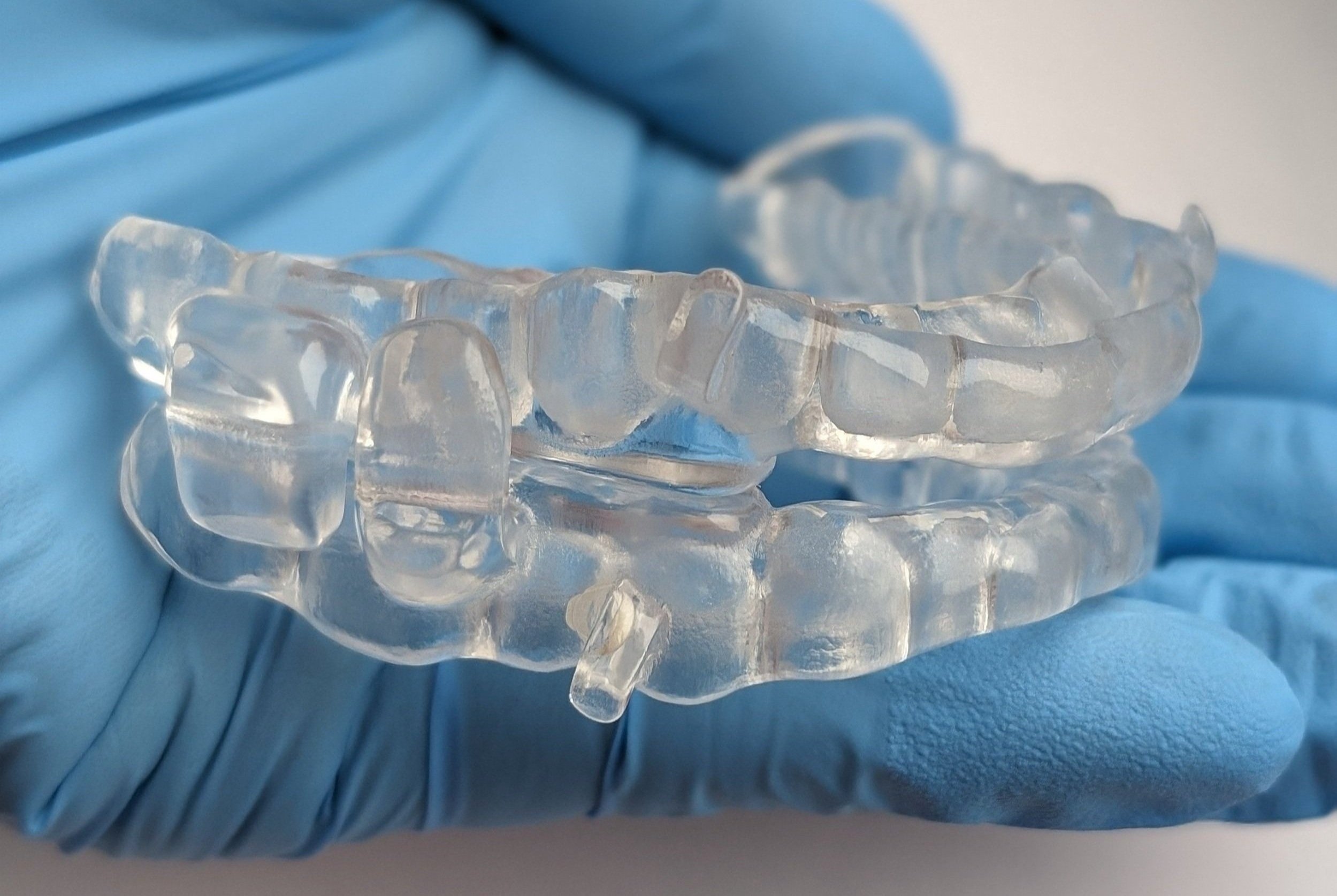
Oral Appliance Therapy
Mandibular Advancement Devices
Why Consider Oral Appliance Therapy?
Are there any alternatives to PAP therapy? I understand it is important to treat my sleep apnea, but I really don’t want to wear a nose or face mask every night and carry a machine everywhere.
I already have a CPAP machine that I use every night, but I am planning a backpacking trip later this year. I need to pack very light and I may not always have access to electricity. What are my options?
Positive airway pressure therapies (PAP), including continuous positive airway pressure (CPAP), bilevel positive airway pressure (BiPAP) and auto-titrating positive airway pressure (APAP) are effective and remain the first-line treatment for OSA in conjunction with lifestyle changes and weight reduction (whenever possible), however oral appliances are a reasonable alternative if patients cannot tolerate, do not respond to, are not appropriate candidates for or would prefer not to use CPAP. ⁷⋅⁸
I already have a CPAP machine that I use every night, but the pressure I need to treat my apnea is too much. Is there anything that can help me?
Combination therapy with a mandibular advancement device (MAD), and nasal CPAP is effective in normalizing respiratory disturbances of sleep apnea in selected OSA patients who are intolerant to CPAP ⁹ and can reduce therapeutic CPAP requirements by 35%–45%. ¹⁰ A lower pressure will be much more comfortable and increase CPAP compliance - and some patients even find that they no longer need their CPAP to treat their sleep apnea.
I don’t have sleep apnea, but my partner doesn’t want to sleep in the same room as me because I grind my teeth and snore like a truck. It’s affecting our relationship. Help!
The American Academy of Sleep Medicine and American Academy of Dental Sleep Medicine Clinical Practice Guideline 2015 recommends that sleep physicians prescribe oral appliances, rather than no therapy, for adult patients who request treatment of primary snoring (without obstructive sleep apnea). Oral appliances reduce the frequency and intensity of snoring, improve sleep quality for both patients who snore and their bed partners, and improve quality of life measures.¹¹
Tell me more….
-
Mandibular advancement appliances or devices (MAD) snap over your upper and lower teeth like mouthguards and are worn when sleeping to temporarily advance the lower jaw/tongue anteriorly and inferiorly (forward and down), opening up the airway and preventing the collapse between oropharyngeal tissues and the base of the tongue. Because MADs cover your teeth, they also act as retainers, holding your teeth in plane, and as a nightguard, as you won’t be able to grind your teeth with them on.
MADs are titratable, and we will work with you to determine the best setting for you.
-
Oral appliances are indicated for use in patients with mild to moderate OSA who prefer them to CPAP therapy, or who do not respond to, are not appropriate candidates for, or who fail treatment attempts with CPAP. For patients with severe OSA, oral appliances can be used in combination with CPAP therapy to reduce discomfort and increase compliance.
Oral appliances are also recommended for adult patients who request treatment of primary snoring without OSA.
-
Great news! We do not need to take that type of impression to make your MAD. We take a digital 3D scan of your upper and lower teeth (no radiation involved), design and fabricate your unique appliance.
-
1) Your subjective observations: Do you feel more rested in the morning? Do you now sleep through the night? Are you no longer snoring?
2) Objective testing: At Airway, we include 3 home sleep studies with the cost of the appliance and the interpretation of these studies will tell us whether the appliance is working for you and at what setting. Your sleep physician may also suggest a final polysomnography (lab sleep study) for more data.
-
With a prescription from your sleep physician, oral appliances are covered by some medical insurances, as OSA is a medical condition.



